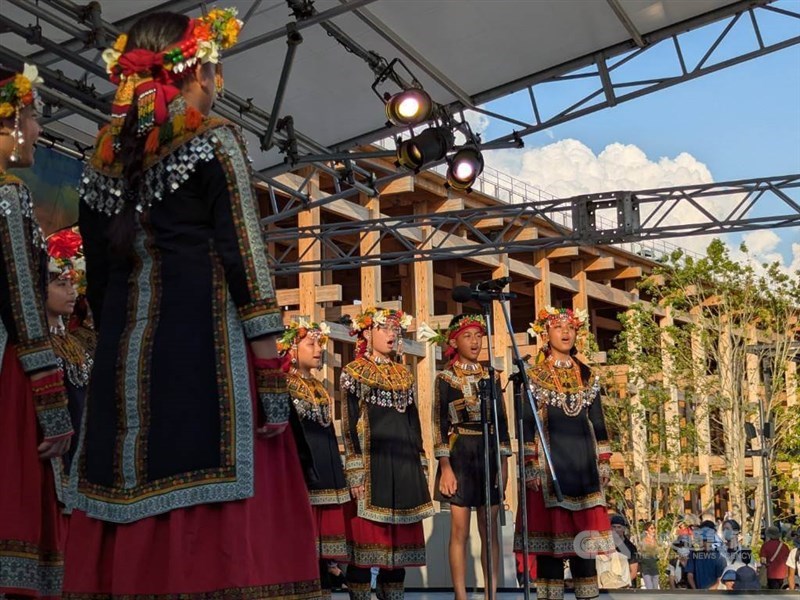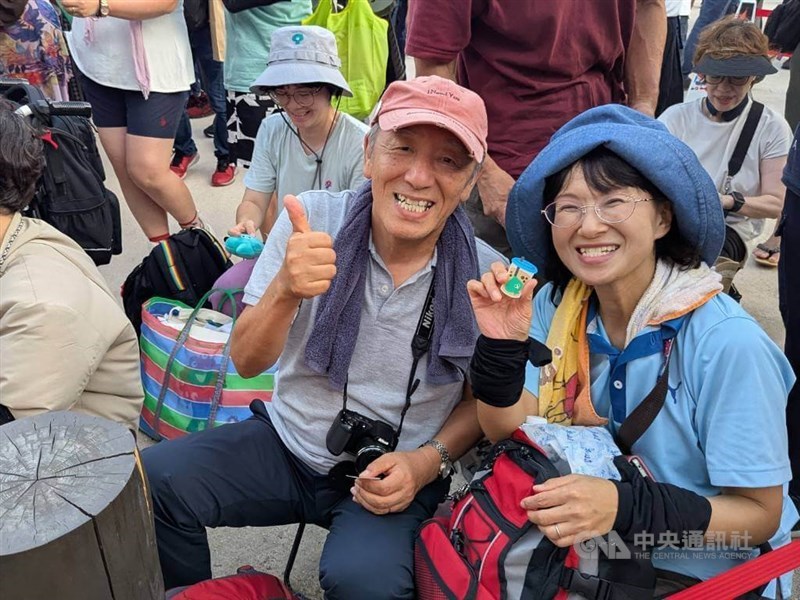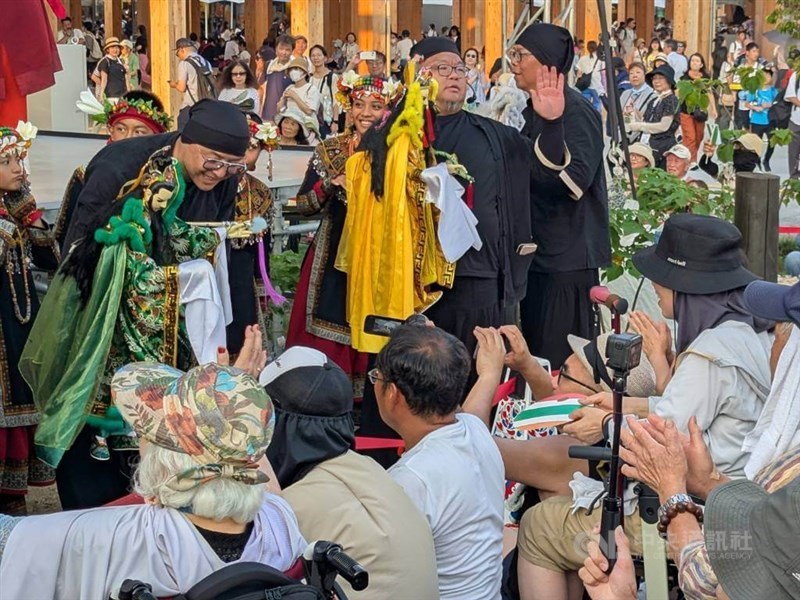
Taipei, Aug. 31 (CNA) The Ministry of Culture's flagship program blending Taiwanese traditional religious rituals and classic Hokkien folk songs received an enthusiastic response from audiences at the Expo 2025 Osaka venue on Thursday.
Directed by artistic director Tu Shih-hue (杜思慧) and musical director Juo Shr-yau (卓士堯), "A Ritual of Gratitude Before the Temple" was the grand finale of "We TAIWAN," the MOC's program at the Osaka expo.
Despite the sweltering heat, crowds began gathering in front of the stage well before the performance.
A Japanese couple who arrived an hour early said they were drawn by their fondness for Taiwan, describing the country as "familiar and friendly," adding that the children's choir performance especially moved them.

The program brought together nine artists and performing arts groups, including the Puzangalan Children's Choir as well as singers Sangpuy (桑布伊), Hsieh Ming-yu (謝銘祐), Chiu Shu (邱舒), and Tiunn Ngá-Sûn (張雅淳).
Choir conductor Wu Sheng-ying (吳聖穎) told local media that 13 children participated, marking the first time the group has performed in Japan.
Among the highlights was the collaborative piece "The Words We Speak: A Mother's Voice" (咱講的話:阿母的話) performed by Hsieh, Chiu, and Tiunn, which opened with the familiar melody of "Siang-siat-ki (思想起 "Remembering")."
Tiunn said she adapted the lyrics to fit the ritual opera theme, using the song to express gratitude to Taiwan's deities, who, like the island's mountains, protect its people.
Meanwhile, Hsieh performed his original Hokkien (commonly known as Taiwanese) song "Gōo-tiâu-káng pinn" (五條港邊 "By the Five Harbors") and joined the others in a trilingual rendition of the 1950s classic "The Star Knows My Heart" (星星知我心) in Taiwanese, Japanese, and Hakka.
"The Taiwanese and Japanese versions of the song have finally met again on the Yumeshima stage," Hsieh said.
The piece, with its Japanese enka influence, embodies the intertwined musical traditions of Taiwan and Japan and was therefore particularly fitting for the occasion, he added.
Switching between Taiwanese, Japanese and English to introduce the songs, Hsieh said that Taiwan's priority is "to be seen," and that music is the ideal medium to "peacefully" convey Taiwanese values.
Chiu performed an original song written by her mother, Pai Meng-ling (白夢玲), about longing for one's hometown. Singing it on a global stage, she said, represented "a kind of generational inheritance."

Originally, the show's creators had arranged the Taiwanese flag to be shown on the backdrop during the performance, but were told they had to drop the arrangement due to political reasons.
To extend the performance's reach, Minister of Culture Li Yuan (李遠) said in a statement Thursday that the MOC has secured Cabinet approval for a budget that will allow the "We TAIWAN" showcase to be staged in Taiwan in 2026.
"We want to declare proudly to the world, together on Taiwan's soil, 'We are Taiwan,'" he said.
Enditem/ASG
-
Culture
Czech author reflects on cultural erasure under authoritarian rule
02/22/2026 04:35 PM -
Society
Nantou forest fire contained after 7 days; cause under investigation
02/22/2026 01:39 PM -
Culture
Director Tsou Shih-ching challenges gender norms in 'Left-Handed Girl'
02/22/2026 11:04 AM -
Society
Taiwan headline news
02/22/2026 09:43 AM -
Society
Highs of 25-30°C and sun forecast for Taiwan Sunday
02/21/2026 07:22 PM